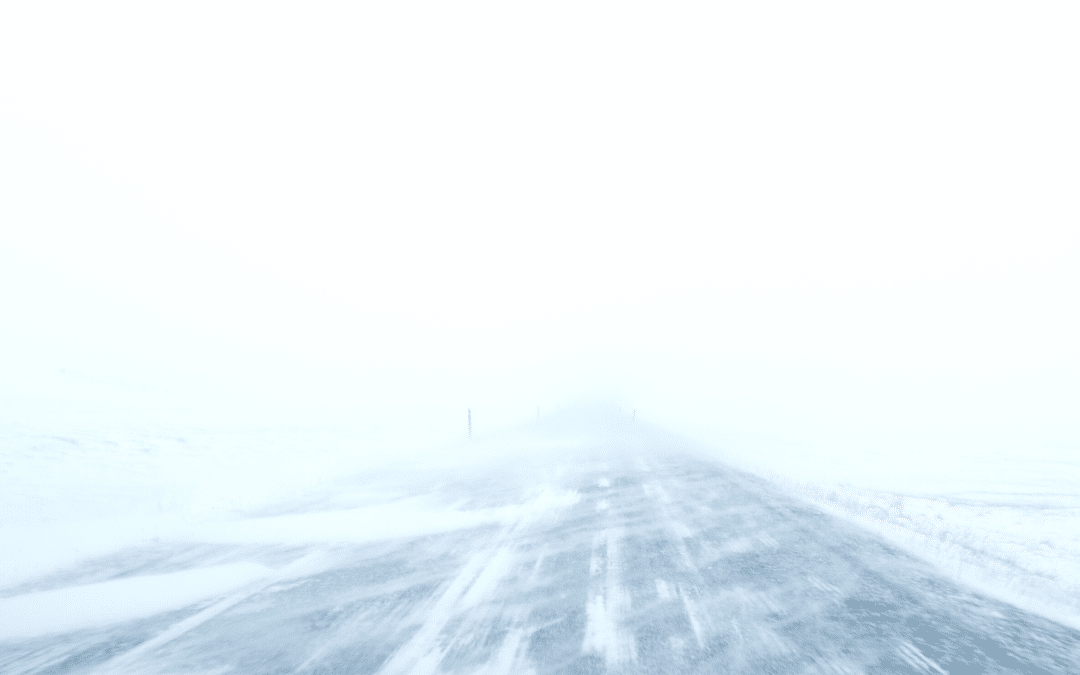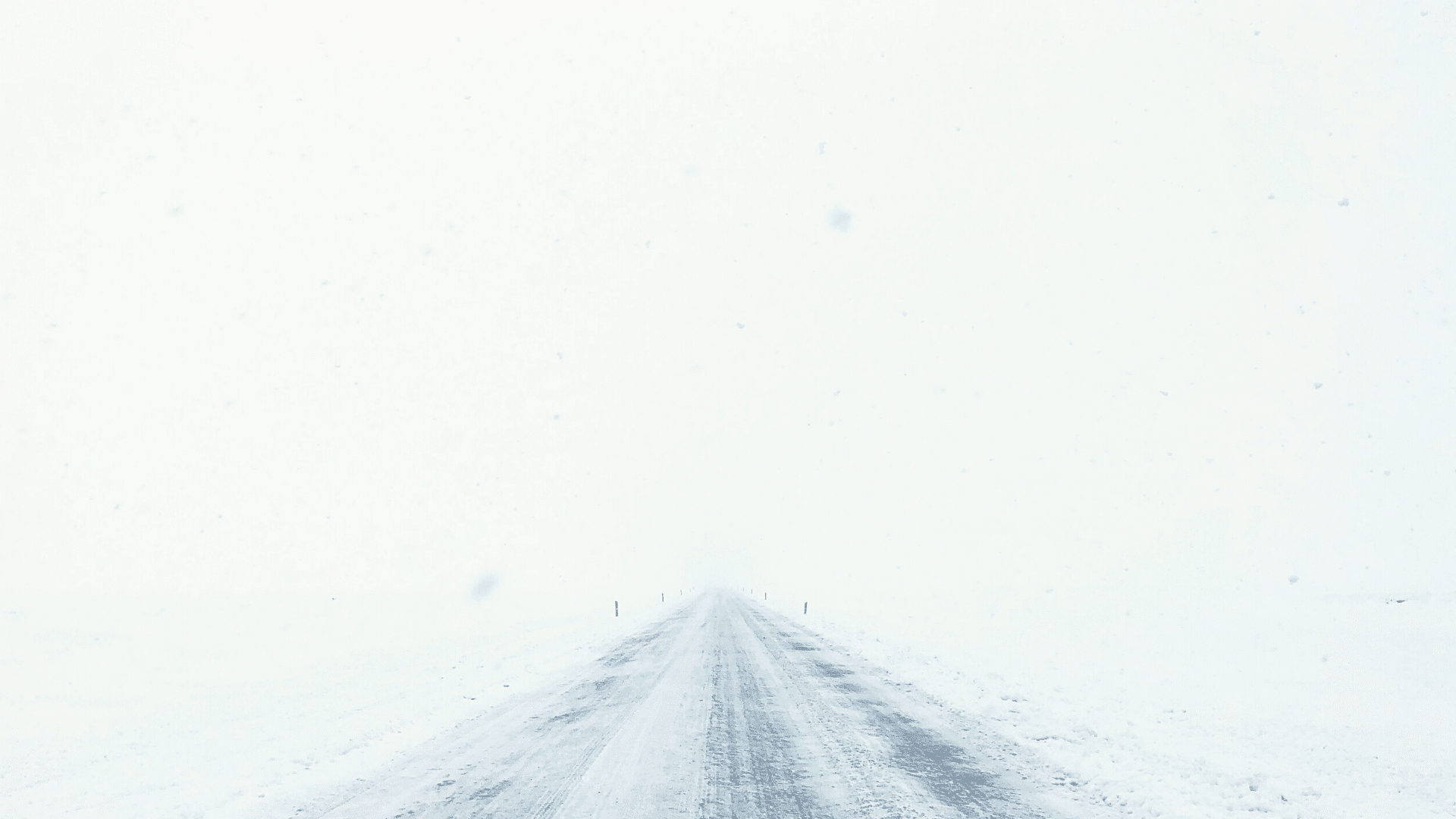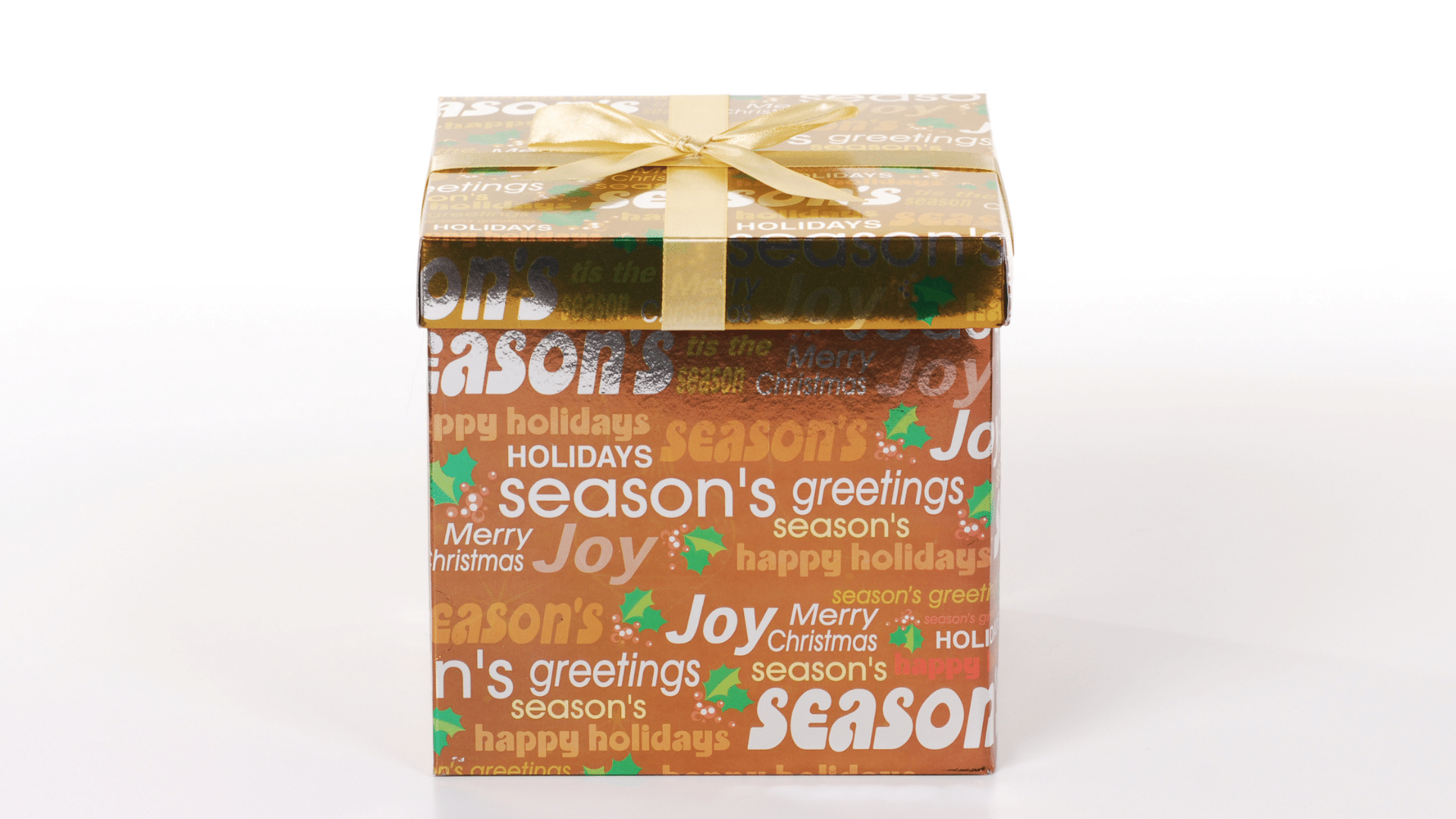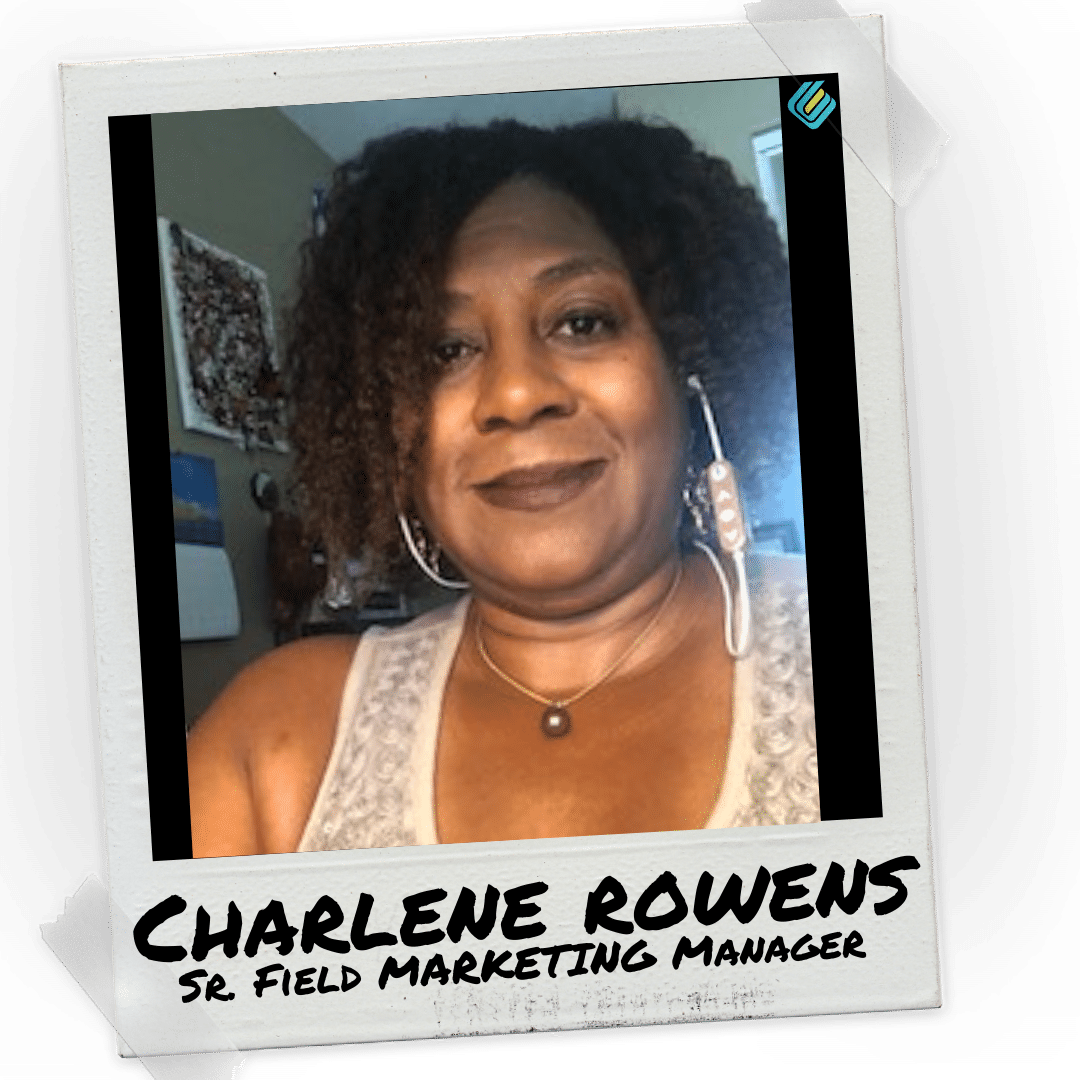
by California Casualty | Auto Insurance Info, Safety |
There’s never a good time for severe weather to hit, but among the worst is when you’re on the road. A sudden snowstorm can quickly impair your visibility, make road conditions extremely dangerous, and affect how your car handles.
Stay safe on wintertime roads with these tips for driving in snow, whiteouts, and on ice.

First, some general winter-weather rules of thumb
The below apply to all bad weather driving scenarios.
-
- Make sure your tires have plenty of tread before winter weather hits – or better yet, install winter tires.
- Check the weather before you leave the house; if it’s too bad, wait it out.
- Clear all snow, ice, and dirt from windows, windshield, brakes, and all other lights before leaving your driveway.
- Drive slowly the entire time while on the road (the more dangerous conditions, the slower).
- Drive smoothly, avoiding sudden movements on the steering wheel, brakes, and control panels.

Driving in Snow
The quality of snow in a snowstorm can vary widely, depending on wind speed and direction, moisture levels and more. The snow might be slushy or dry, sparse or voluminous, and it might be falling straight down or at a sharp angle. All of these variables affect how you should proceed on the road, but the following will keep you safer across many conditions.
-
- Go slow – Increase your following distance to at least 8-10 seconds.
- Be hyper-aware of your surroundings – Vigilance on the road will help you avoid snow dangers and also spot (and get out of the way of) out-of-control drivers who are sliding your way.
- Don’t use cruise control – It’s important that you’re paying close attention and that you’re able to react to road conditions quickly.
- Use your headlights – Make sure your headlights are on (no matter the time of day), and that they’re on dim and not high. This will help your visibility and also help other drivers see you.
- Adjust how you brake – If you’re coming up on a stop sign or signal, come to a stop slowly (that extra following distance comes in handy here). Don’t slam on your brakes, as this can put you into a skid. If you have anti-lock or ABS brakes make sure you’re comfortable with how they work in all weather conditions, including snow.
- Know when and how to stop – Don’t stop if you don’t have to (starting again can be dangerous and difficult), and never stop on a hill. If you must stop, remember it takes vehicles longer to come to a stop in snowy conditions.
- Drive in the tracks of the car in front of you – This will make it easier to control your vehicle.

Driving in Whiteout Conditions
Whiteouts may be one of the most dangerous of snowy conditions. Here’s how to handle it if you find yourself in one.
-
- Remain calm – This is harder said than done but trying to remain calm will help you avoid over-reacting or making poor decisions.
- Slow WAY down – The most dangerous thing about a whiteout is the sudden loss of visibility. Slowing down will give you time to see what other drivers are doing and have time to react if an accident or other emergency happens right in front of you.
- Make yourself visible to other drivers – Just as you can’t see other drivers, they can’t see you. Make yourself as visible as possible by turning on your headlights (fog lights are best if you have them), and perhaps even your hazards. You can even use hand signals out the window if you need to.
- Wait out the whiteout – If visibility drops to zero and you feel unsafe, look to the nearest exit and pull off. From there, find a shoulder to pull over on. If there are no exits on your stretch of highway, pull to the side of the road, turn on your hazards, and wait out the storm.

Driving in Ice
Besides the snow you can see, there may be ice that you can’t. Notoriously hard to see, black ice acts as a glaze that coats surfaces and makes them extremely slippery and dangerous. When driving, you’ll want to be on the lookout – and ready – for it on all roads, but especially bridges, overpasses, tunnels, roads beneath overpasses, and at the bottom of hills. Check out our tips for spotting and safely negotiating black ice here.
When it comes to the downsides of winter, hazardous driving situations are among the top. But between staying off the road when possible, and taking precautions when you do have to drive, you can keep yourself, your family, and other drivers safer.
This article is furnished by California Casualty, providing auto and home insurance to educators, law enforcement officers, firefighters, and nurses. Get a quote at 1.866.704.8614 or www.calcas.com.

by California Casualty | Educators, Safety |
Much like all else in 2020, this holiday season is sure to look a little different this year. And unfortunately, many of us will not be together, like we had planned; but that doesn’t mean we have to miss out on all of the fun with our friends and families!
Whether you are a teacher hosting a party for your remote learning class or a family staying socially distant at your holiday gathering, we’ve got an array of ideas to help you have fun at your virtual holiday party.
Check out our list of Zoom holiday party ideas below.

1.Virtual Ugly Sweater Contest
No holiday party is complete without everyone going completely all out in their festive gear! Invite each person on your Zoom call or in your virtual classroom to show off their ugly sweaters and have everyone vote on their favorites.
Don’t want anyone to have to buy an ugly sweater? Try dressing up with Santa hats, elf ears, or reindeer antlers; or hold a contest for the best holiday decor or funniest holiday Zoom background! The possibilities are endless. For prizes print off certificates or send e-gift cards.

2. Play a Game
There are tons of games that you can play together with your class or friends and family that can be taken virtual like: Trivia, Simone Says, Scattergories, Heads Up, 20 Questions, Zoom In, etc. Here are a few funs ones that you can try with your crew:
-
- Carol Pictionary
- Use the Zoom whiteboard feature, split into teams and take turns guessing the carol that is being drawn, you must SING the carol to win.
- Charades
- Come up with a fun list of Holiday sayings or movie titles, have everyone split into teams, and let the fun begin
- Festive Bingo
- Make or buy virtual bingo cards and email them out prior to your event
- Name That! – Holiday Edition
- Have someone volunteer to DJ (if you are a teacher that means you) and challenge your guests to name that Holiday Tune! You could even play using short youtube clips of your favorite festive movies.
- Guess the Gift
- Have each player wrap something up as a “gift” and everyone else try and guess what it is by asking only questions!

3. Send Holiday Gift Boxes & Open Them
Wish everything going on in the world today, it can be hard to get into the holiday spirit. Sending a holiday gift package can be an easy way to spread cheer and a physical reminder that even though you are apart, you can still celebrate together. You can even have everyone wait to open them until you are on your virtual call together. Here are some ideas of what you can include in your packages:
For Students: Holiday bingo card, hot chocolate, holiday-themed or cozy socks, a handwritten note, holiday-themed pens, pencils, or note pads, candy
For Friends and Family Members: Holiday games to play, homemade treats, holiday drinking favorites, gift cards, holiday-themed clothing items: ugly sweaters, hats, socks, etc., blankets, holiday movies, photo booth prompts

4. Do Holiday Crafts
What’s not to love about holiday crafting? It’s cheap and something that you can do with people of all ages. You can even keep your creations and use them as decorations next year! Here are some easy(ish) holiday crafting ideas to try:

5. Host a Virtual Holiday Scavenger Hunt
This past year we’ve all spent a lot of time sitting behind the screen. Scavenger hunts are easy ways to get everyone up and moving and they are so easy to do! To make an at-home holiday scavenger hunt, come up with a list of festive items or descriptions of items that can easily be found inside everyone’s home this time of year (or you could just find one on Pinterest).
If you plan on making your own scavenger hunt here are some easy ideas to put on your list:
-
- Something shiny
- Something makes noise
- Something the Grinch would love
- Something you could put in a stocking
- A prop that could have been used in “Home Alone”
- Something a reindeer would eat
- Something better than presents
- Something you could use as a Tree
- Something that resembles snow
- Something as tall as an elf
- Something you can tie into a bow
Have a good laugh when everyone comes together (virtually) to share their findings!

6. Enjoy a Holiday Treat Together
What brings people together more than food? Exactly. Have everyone bring one (or more than one) of their favorite treats to the party to enjoy while doing other activities!
For Teachers: You can send them holiday treats before your party, or have them bring a treat of their choice (doesn’t have to be holiday related) to eat with their peers while having fun!
For Friends and Family Members: Make your favorite holiday dishes or desserts to enjoy surrounded by your favorite people.

7. Host a Talent Show
Have each person come to the virtual party with a Holiday talent in mind to show off to their peers. This can be anything from acting out a Holiday movie, singing or playing an instrument to the tune of a Carol, showing off their design skills by dressing up as a well-known character, telling Holiday Jokes, decorating cookies, or gingerbread, etc.
The talent show is purely for entertainment purposes and should be voluntary so shyer party-goers can sit back and have fun watching the show, but don’t forget to send out a signup sheet at least a week before so everyone has time to prepare!
and last but not least, remember to…

8. Keep Up With Any Traditions
We may not all be together right now, but that doesn’t mean we should stop partaking in our holiday traditions. It may take some adapting, but you’ve got this! It’s important (especially for our kids) that we can continue to make happy memories during the most wonderful time of the year.
For Teachers: If it’s traditional for your kids to create holiday cards for their parents- send your kids a holiday card template, let them decorate it, and give it to their parents. Or if you usually make ornaments, take time during your virtual party and work together online as a class to create them!
For Friends and Family Members: If your family has traditions like baking together, singing carols, putting on your new PJs, and watching movies- you can do all of these things virtually at your holiday party as well. Sure, it’s not the same as being together, but it’s the next best thing.
Don’t forget! – No party is complete without some festive tunes! Check out our kid-friendly Holly Jolly Holidays Playlist on Spotify to set the mood for your virtual holiday party this season. Click here to listen.
This article is furnished by California Casualty. We specialize in providing auto and home insurance to educators, law enforcement officers, firefighters, and nurses. Get a quote at 1.866.704.8614 or www.calcas.com.
by California Casualty | News |
We have amazing employees at California Casualty. The Employee Spotlight is a new series aiming to highlight those talented individuals that make up our successful company culture and community. From human resource recruiters and learning and development trainers to claims adjusters, marketers, customer support specialists, partner relations, sales representatives, and beyond; each week, we’ll highlight a new team member, so you can get to know us better and see how our employees make us who we are as a company.
This edition of the Employee Spotlight will feature Senior Field Marketing Manager, Charlene Rowens.
Charlene has been with us for almost 8 years (her anniversary is next week!) and works remotely for our Partner Relations team.
Let’s get to know Charlene!

What made you want to work as a Field Marketing Manager for California Casualty?
I have an insurance career background, so for me, it was like coming home.
I was also impressed that CalCas worked with American Heroes: educators, law enforcement, firefighters, and nurses. That definitely appealed to me so I applied right away.
What is your favorite part about your job?
I love helping American Heroes save money and use exclusive benefits that are solely for them (auto and home insurance). Our groups work so hard every day to educate our future, keep us safe and healthy, they deserve to be treated special.
I also like that no day is the same. Before Covid, I was somewhere different every day. I could be working in a teacher’s lounge, police briefing, fire station, or a conference. My territory includes Riverside, Pomona, Corona, Norco, San Bernardino, and the high desert as far as Bartow. So, I am usually a road warrior, but that’s fine by me. I love to network and talk about California Casualty Benefits. We really take care of our policyholders.
What have you learned in your position at California Casualty?
Time management; to make sure I give our affinity groups equal attention because it is part of their member benefits and I want to give all an opportunity to use their member benefits.
What are your favorite activities to do outside of the office?
I enjoy the beach, walking, traveling, reading self-help books, and enjoying time with my family!
Anything else you would like the audience to know about you?
I am from the same place as Michael Jackson, Denise Williams, Ernest Lee Thomas, Fred Williamson, Glenn Robinson, Frank Borman, and others I may be forgetting. That city is Gary, Indiana!
I married my college sweetheart! We just celebrated our Silver anniversary and have known each other for 30 years. I have a son 22-years-old just graduated from DePaul University, a double major in Finance and Economics, and a son Senior in high school.
If you want to learn more about Charlene or are interested in a career at California Casualty, connect with her on LinkedIn! Or visit our careers page at https://www.calcas.com/careers

by California Casualty | News, Safety |
Although many of us won’t be able to visit friends, family, or loved ones this holiday season, that doesn’t mean we can’t still bring them joy or spread the Yuletide cheer!
Check out these 20 great holiday gift ideas for everyone in your life – no matter where they are.
1. Printable Coupons – Flex your creative muscles by making personalized coupons that can be printed out and redeemed later – for hugs, virtual family time, happy hour or anything, really! For a handmade touch, draw or paint them and send via snail mail or a digital photo.
2. Streaming Service Subscription – These days, there is no shortage of streaming service choices. Would anyone on your list like a subscription for movies, shows or music?
3. Gaming Subscription – Gamers can never get enough gaming time. Make sure you know which app or platform the gamer in your life uses before purchasing.
4. Audiobook Membership – Audiobooks are a great gift for book lovers for several reasons: they can “read” on the go, listen to master storytellers bring books to life, and have access to unlimited audiobooks (for most subscription platforms).
5. Donation – For those who have everything, donating to a cause you know they care about will give them some extra good feels for the holidays.
6. Museum Pass – Many people assume museums are closed, but in fact many have done a ton of work to go virtual. Get your favorite art lover a pass and help them get their art groove on.
7. Online Grocery Shopping Service – Help loved ones stay safe and give them some extra time in their day by gifting a subscription to their favorite grocer.
8. Food Delivery – Go one step beyond groceries and send a subscription for a food delivery service in their area. No dishes to clean, and a hot cooked meal delivered straight to their door? – yes, please!
9. Meal Delivery Kit – Halfway between groceries and food delivery, meal kits take the guesswork out of dinner prep, and will be much appreciated by any home chef.
10. Wine Subscription – Wine lovers on your list will look forward to new arrivals all year long. For those who aren’t partial to wine, check out subscriptions for beer, cheese, olive oil or other specialty foods.
11. Coffee or Tea Subscription – Broaden your favorite coffee or tea drinker’s horizon by getting them something new for their morning ritual.
12. Magazine or Publication Subscription – There’s a publication for everyone – all depending on their interests. Have a friend or family member who’s been wanting a digital newspaper subscription? How about a magazine all about one of their hobbies or interests? A google search for “online newsstand” should spark a ton of ideas.
13. Virtual Yoga or Gym Membership – Taking care of our own health is often last on the to-do list. Keep your loved ones healthy and help them lower their stress by getting them the gift of health.
14. Meditation App – Who couldn’t use a little calm and peace right now? Check out the many meditation apps available and find the perfect ones for your favorite people.
15. Online Learning Subscription – Have any curious, knowledge-thirsty folks in your circle? Send them a subscription for language courses, higher education classes or another online learning opportunity.
16. Subscription For Creative Arts – Creative projects can help keep us inspired and motivated during the long winter months. For the creatives in your life, look into crafting subscriptions, online painting classes, virtual music lessons, and other right-brain endeavors.
17. Virtual Scrapbook – Send friends or family a reminder of great times together (pre-Covid!) by assembling a virtual scrapbook of favorite memories. The great thing about an online versus paper version is that you can include videos in the mix of photos.
18. Makeup or Beauty Subscription – Someday we’ll have a reason to go out again, but in the meantime, receiving a regular beauty box can give a boost to those on your holiday list.
19. Membership – There’s an association or club for just about every passion, hobby or interest. Birding? Definitely. Fishing? Yep. Quilting, classic cars, sculpture? – there’s a club for that!
20. Professional Membership – Give a loved one a career boost by getting them a membership to a professional association in their field.
No doubt – this holiday season looks different than all the years past. But with some flexibility and creativity, we can still connect and celebrate with our loved ones. And surprise them with the perfect gifts! Happy holidays to all!
This article is furnished by California Casualty. We specialize in providing auto and home insurance to educators, law enforcement officers, firefighters, and nurses. Get a quote at 1.866.704.8614 or www.calcas.com.

by California Casualty | Homeowners Insurance Info |
Extreme weather events are becoming more severe and frequent. If you live in a region that gets snow and ice, these events can easily cause damage to your home, racking up losses and repair costs.
Here are some of the common ones to prepare for, coverage considerations, and how to prevent damage in the first place.
Frozen Pipes
One of the most common sources of wintertime home damage is water damage from frozen pipes. Losses are usually covered under your homeowner’s policy; however, keep in mind that some claims are denied if negligence is found (e.g. proper home temperature wasn’t maintained).
Protect against water damage:
-
- Add extra insulation in attics, basements, and crawl spaces where pipes may be exposed to the cold.
- During especially chilly spells, turn faucets on just enough for a very slow drip.
- Shut off water to outside hoses and store them inside to protect them from extreme temps.
- Read our post for more tips on preventing frozen pipes.
Ice Dams
Ice dams form when snow melts on your roof and refreezes before siphoning off. Once formed, they continue to grow with further melt/refreeze cycles. Over time, ice dams can damage your roof, sometimes springing leaks that let water into your home. While your homeowner’s policy should help cover damage to your roof and home (check your policy for coverage limits and details), it probably won’t cover damage to any personal belongings.
Protect against ice dams:
-
- Remove snow from your roof regularly.
- Ventilate your attic so that hot air doesn’t get trapped, warm a spot on your roof, and melt snow that can easily become an ice dam.
- Turn down the heat in your home so as to prevent the roof warming that produces ice dams.
- Check out our post on winter roof care for more ice dam-prevention tips.
Hail Damage
Roofs and windows are especially susceptible to hail damage. Make sure you understand your coverage and any hail exclusion that may apply. After a storm, inspect your roof for damage right away – remember, if damage goes unnoticed it can cause roof leaks months later that may not be covered.
Protect against hail damage:
-
- Have your roof inspected every year in the fall and repair or replace missing or loose shingles or tiles.
- If your area is especially prone to hail storms, look into installing hail-resistant asphalt shingles.
Wind Damage
Severe storms oftentimes bring severe winds. Although sometimes damage can happen with wind directly hitting your home, usually the real danger lies in what the wind can blow into or onto your home.
Protect against wind damage:
-
- Keep up with trimming trees and branches that are leaning, weak, dead, or otherwise compromised or a threat to your home. Check out the top 7 signs of tree health issues here.
- Inspect your home’s exterior for loose siding, gutters, and shutters.
- Read all our tips on prepping for severe storms.
Injuries From Ice
Black ice is a slipping, injury, and accident risk wherever it forms – on roadways, driveways, walking paths, porches, decks, and steps. If a visitor slips and sustains an injury on your property and decides to sue, are you protected? Liability coverage is usually included as part of homeowners insurance and would kick in, in this case, to help with the person’s medical bills as well as your legal costs. That said, check with your agent to review your coverage limits and conditions.
Protect against black ice:
-
- Be vigilant about snow shoveling so that snow doesn’t melt and refreeze on high-(foot)traffic areas.
- Clear your gutters so that water goes down the spout like it’s supposed to, instead of onto walking paths.
- See our article for more black ice safety tips.
Roof Collapse
Roofs can collapse if the weight of ice or snow on them is too much to bear. Insurance may help cover the cost of repairing or replacing a damaged or destroyed roof. And if your house is uninhabitable as a result, it may cover additional living expenses and/or hotel. Check to make sure you understand what your policy covers, as well as all limits and terms.
Protect against collapse:
-
- Have regular annual roof inspections so you are aware of and can fix any issues that can cause structural vulnerabilities, weak spots, or problem areas.
- If snow is piled too high for you to remove, or if your home is taller than a single story, look into hiring a professional snow removal service.
- If you already have ice dams, get them removed professionally asap – ice dams can cause serious and costly damage.
Wintertime damage to your home can happen before you’ve even had time to think about it – and by then, it’s usually too late and you’re looking at losses, repairs, and the claims process. Protect your home before the storms roll in by making sure you’re covered and – even more important – have the kind of coverage you need.
This article is furnished by California Casualty. We specialize in providing auto and home insurance to educators, law enforcement officers, firefighters, and nurses. Get a quote at 1.866.704.8614 or www.calcas.com.

















